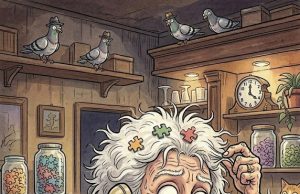As much as we hate to admit, our body has a biological clock that keeps ticking. This means that as we grow older, our body functionality becomes less efficient, and to keep it going, we have to observe certain changes in lifestyle. One of the biggest changes people have to make is in their diet. Certain foods become hard to digest as we age, and they must be avoided to secure a healthier lifestyle. Today, we will take a look at some foods that you must avoid after the age of forty.

1. Soft Drinks And Sodas
This is definitely top on my list. For me, no food seems to contain empty-calorie as much as these products. The major ingredients of soft drinks and Sodas are caffeine, fructose, and refined sugar. Do not be deceived by the word diet soda or diet coke or any other name that seems to attract you as you perceive them to contain no sugar. Yes, they do not but they are loaded with artificial sweeteners like aspartame and saccharin which are even worse.
At age 40, your pancreas which is the organ responsible for the secretion of insulin which acts on sugar could have reduced in its performance unknown to you. The caffeine in sodas has also been associated with higher chances of a heart attack.
2. Refined carbs
This pertains to not just one, but a group of foods that are prepared using refined and processed carbs, like pasta, doughnuts, white bread, cookies, and pancakes. These foods have a high glycemic index, which means they rapidly increase blood sugar levels. High blood sugar levels is a contributing factor to heart disease, weight gain, and diabetes. Spiked blood sugar levels increase hormones that stimulate oil production, which affects the composition of the skin’s oil, causing skin problems like adult-onset acne.
3. Red meat
Diets high in red meat are usually linked to high cholesterol, cardiovascular disease and a greater risk of diabetes. Men are at a higher risk of prostate cancer when they consume other meats cooked at high temperatures as this is often carcinogenic.
4. Processed meats
Processed meats like sausage, ham, bacon, and salami are high in saturated fats, which might be a good idea to avoid once you reach the age of forty. The fat content increases inflammation, which contributes to arthritis, heart disease, and increased blood pressure. Moreover, processed meats contain nitrates, as they get converted to nitrosamines, chemicals that cause ᴄᴀɴᴄᴇʀ. Instead, opt for nitrate free and non processed meat like organic meat.
5. Alcohol
Some health professionals have argued that a little alcohol is good for the body. While I do not disagree with their assertion, I have never read or heard of any research that shows how avoiding consuming alcohol becomes hazardous to your body. At age 40, regularly funneling volumes of alcohol especially lager and ale will place pressure on your kidney and liver.
5. Fast food
Fast food contains a mixture of some of the unhealthiest ingredients known to man, namely sugars, unhealthy fats, nitrates, and sodium. Together, these ingredients play havoc on the body, not only for older people, but for people of every demographic. Sugar is a source of empty calories, which increases the chance of weight gain without providing any nutrition. Unhealthy fats like saturated fat increases LDL cholesterol levels, therefore making you more susceptible to heart conditions. Nitrates and salt are used as preservatives in fast food, and while nitrate has been linked with causing ᴄᴀɴᴄᴇʀ, salt is associated with increasing blood pressure and causing bloating.
6. Commercial fruit juice
People always believe that commercial fruit juice is healthy because of the way it is advertised. Health benefits like high vitamins and minerals, or 100% natural juice, often lead us to believe that it is good for us. But in reality it is not a good choice, especially for ageing people, as the sugar present in it is bad for people with diabetes and gout. Furthermore, most juices are made after removing the beneficial fiber in the fruit, which plays a role in gut and bowel health.
References: timesofindia.indiatimes.com, guardian.ng, http://trendinginkenya.com/



















